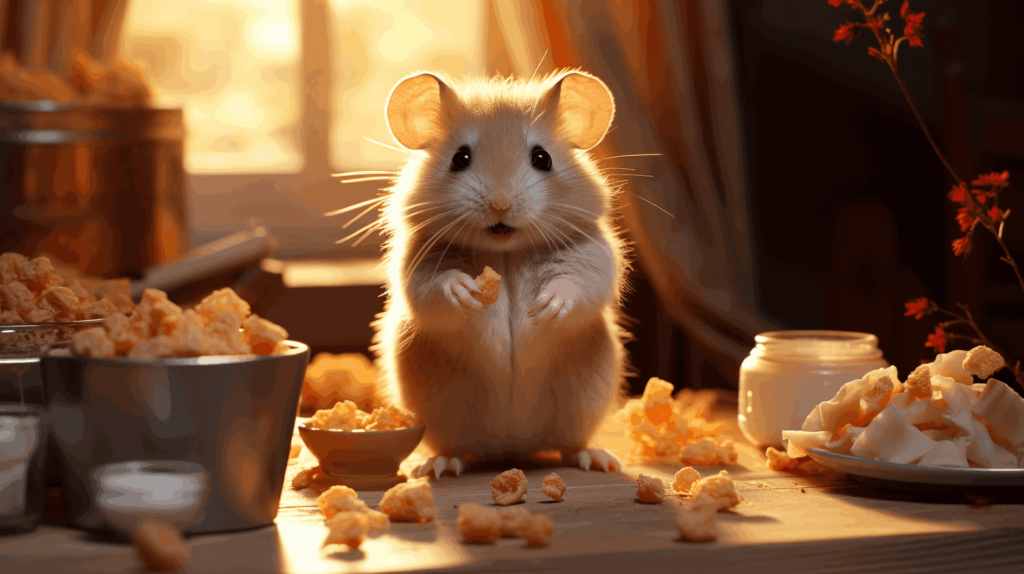The dietary needs of alpacas have piqued the curiosity of many owners and enthusiasts. From grass and hay to select vegetables, their primary diet is well-established. However, one question remains: Can alpacas enjoy the occasional indulgence of popcorn?
This article delves into the safety of feeding popcorn to alpacas, shedding light on their delicate digestive system and the potential risks of excessive consumption. By exploring the typical diet of alpacas and the signs of grain overload, we aim to provide valuable insights for informed decision-making.
Key Takeaways
- Alpacas can eat popcorn if it doesn't contain seasoning, sugars, flavors, or additives.
- Popcorn is made of grains, which is safe for alpacas in small amounts.
- Consuming large amounts of popcorn can cause grain overload in alpacas, which can be deadly.
- If an alpaca ingests a significant amount of popcorn, provide activated charcoal and contact a veterinarian promptly.
The Safety of Alpacas Eating Popcorn
One should carefully consider the safety of alpacas eating popcorn, as excessive consumption may lead to grain overload, causing digestive issues and potential fatality. Alpacas are herbivores with a primarily grass and hay-based diet, and while they can eat small amounts of popcorn, it is important to note that popcorn is made of grains.
Whole-grain consumption can strain the alpacas' digestive system and lead to grain overload, which can have severe consequences. Signs of grain overload include a worn-out appearance, increased thirst, bloating, and diarrhea. If an alpaca ingests a significant amount of popcorn, providing activated charcoal can help reduce gaseousness and bloating. However, it is crucial to contact a veterinarian promptly to ensure the situation does not worsen.
Overall, it is best to limit alpacas' consumption of popcorn to avoid potential digestive issues and fatality.
Understanding Alpacas' Digestive System
The understanding of alpacas' digestive system is essential for determining the appropriate diet and potential risks, such as grain overload, that can be caused by consuming certain foods like popcorn. To ensure the well-being of these herbivores, it is important to consider the following:
- Alpacas can eat popcorn if it doesn't contain seasoning, sugars, flavors, or additives. Popcorn made of grains is safe for alpacas in small amounts.
- Whole-grains strain the alpacas' digestive system, so they should only eat a little popcorn. Consuming large amounts can lead to grain overload, which can be deadly.
- Alpacas' typical diet consists of grass, hay, certain leaves, and vegetables. Grass and hay provide essential nutrients for their health.
- Alpacas should avoid meat or meat-related products, fatty and sugary foods, and certain grasses like Alfalfa hay due to the risk of poisoning.
Understanding the digestive system of alpacas allows for informed decisions about their diet and helps prevent potential health issues caused by improper food consumption.
Alpacas' Typical Diet and Nutritional Needs
Alpacas primarily eat grass and hay, but understanding their typical diet and nutritional needs helps ensure their overall well-being. Grass and hay provide essential nutrients for alpacas' health, making them the staple of their diet.
Additionally, certain types of leaves and vegetables can be included in their balanced diet. However, it is important to note that alpacas should avoid certain foods. They cannot eat meat or meat-related products, as their digestive system is not designed to break down animal products. Fatty and sugary products should also be kept away from them, as they strain their digestion.
It is crucial to be aware of the signs of grain overload in alpacas, such as a worn-out look, increased thirst, bloating, and diarrhea. If an alpaca ingests excess popcorn, providing activated charcoal and seeking veterinary advice promptly is recommended to prevent complications.
Foods Alpacas Should Avoid for Optimal Health
To ensure optimal health, it is important for alpacas to avoid foods with high fat content and excessive sugar intake, as well as to steer clear of certain grasses that may pose a risk of Candidiasis or Blister Beetle Poisoning. A balanced diet plays a crucial role in the overall well-being of alpacas.
Here are four foods that alpacas should avoid for their optimal health:
- Meat or meat-related products: Alpacas' digestive system is not designed to break down animal products, so foods like cheese, milk, and eggs should be avoided.
- Fatty and sugary products: These strain alpacas' digestion and can lead to complications. It is important to keep them away from foods that are high in fat or sugar.
- Certain grasses: Alpacas should avoid grasses like Alfalfa hay, as they pose a risk of Candidiasis or Blister Beetle Poisoning.
- Grain overload: Overfeeding alpacas with popcorn or other grains can lead to grain overload, which can have severe consequences such as dehydration, bloating, and diarrhea. If an alpaca ingests excess popcorn, prompt action should be taken by providing activated charcoal and contacting a veterinarian to prevent further complications.
Recognizing Signs of Grain Overload in Alpacas
Properly assessing and promptly identifying the signs of grain overload in alpacas is crucial for ensuring their well-being and mitigating potential complications. Grain overload occurs when alpacas consume excessive amounts of grain, such as popcorn, which their digestive system is not equipped to handle.
The signs of grain overload in alpacas include a worn-out appearance, increased water intake, bloating (especially on the left side), and diarrhea as the body tries to clear undigested grain.
If an alpaca ingests excess popcorn or grain, providing activated charcoal mixed with water can help reduce gaseousness and bloating. However, it is essential to contact a veterinarian to ensure the situation does not worsen.
Taking prompt action is necessary to prevent further complications and ensure the well-being of the alpacas.
Taking Action if Alpacas Ingest Excess Popcorn
What actions can be taken if alpacas ingest excess popcorn, and what are the potential consequences?
- Recognize the potential consequences:
- Grain overload can occur if alpacas consume excessive amounts of popcorn.
- Grain overload can lead to slowed digestion, dehydration, and even death.
- Monitor for signs of grain overload:
- Look for a worn-out appearance in the alpaca.
- Increased thirst and water intake may indicate dehydration.
- Bloating, particularly on the left side, is a common symptom.
- Diarrhea can occur as the body tries to clear undigested grain.
- Take immediate action:
- Administer activated charcoal to reduce gaseousness and bloating.
- Mix activated charcoal with water and give it to the alpaca.
- Contact a veterinarian to ensure proper care and prevent worsening of the condition.
- Prevent future occurrences:
- Avoid feeding alpacas excessive amounts of popcorn.
- Stick to their typical diet of grass, hay, and selected vegetables.
- Ensure a balanced diet for their overall well-being.
Conclusion
In conclusion, while alpacas can consume popcorn that is free from seasoning, sugars, flavors, and additives, it is important to be cautious of the quantity they eat.
Alpacas have a delicate digestive system, and excessive consumption of popcorn can lead to grain overload, which can be fatal.
It is crucial for owners to understand their alpacas' typical diet, avoid foods that are harmful to their health, and be aware of the signs of grain overload to ensure the well-being of their animals.



